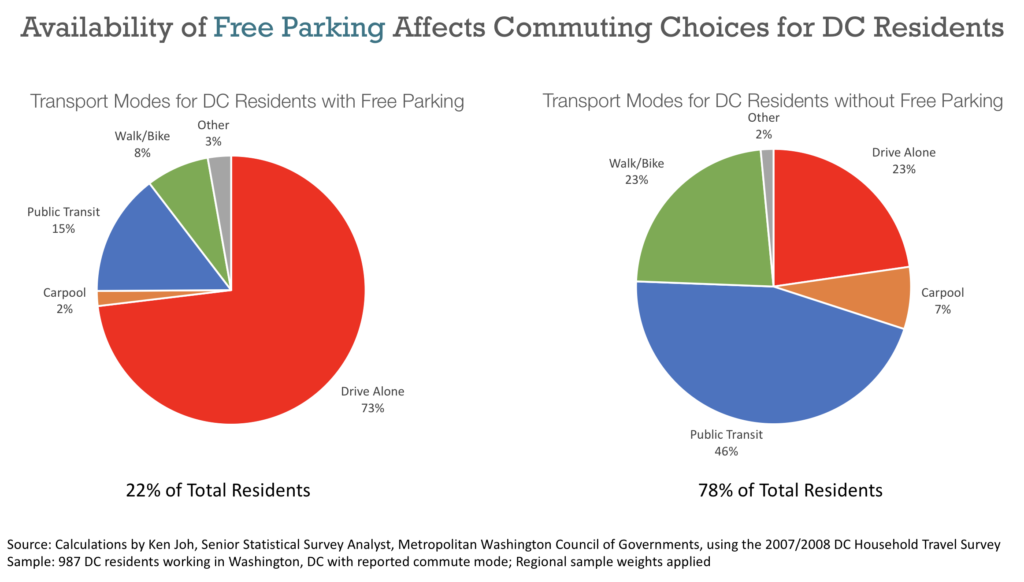January 24, 2020
Appropriations Committee
House Office Building, Room 121
Annapolis, MD 21401
HB0086 – Transportation – Maryland Metro/Transit Funding Act – Alterations (Support)
Testimony for January 28, 2020
Jane Lyons, Maryland Advocacy Manager
Thank you, Madam Chair, Mr. Vice Chair, and members of the Appropriations Committee. This testimony is on behalf of the Coalition for Smarter Growth, the leading organization in the D.C. region advocating for walkable, inclusive, transit-oriented communities. We are strongly in favor of HB 86, which makes necessary alterations to the Maryland Metro/Transit Funding Act.
This bill will repeal the requirement that the Secretary of Transportation withhold a portion of the Washington Metropolitan Area Transportation Authority’s (WMATA’s) operating grant if WMATA’s operating expenditures increase by more than three percent over the prior fiscal year. The current three percent cap is arbitrary and limits WMATA’s ability to provide the level of service its Maryland customers require to get to and from work and other destinations.
WMATA’s own reports have shown that the best way to increase ridership, and thus increase farebox revenue, is to increase service. The WMATA Board has also recently endorsed the bold Bus Transformation Project, which seeks to make bus the mode of choice in the DC region. These service improvements cannot happen without the necessary funding and support from the State of Maryland.
Right now, WMATA’s current budget proposal seeks to increase suburban fares and cut vital bus routes in Montgomery and Prince George’s Counties, which will either require local providers to fill in the gap or, more likely, people will lose the bus service that they depend on to get where they need to go. These fare increases and cuts will disproportionately hurt low-income residents.
The WMATA Board, on which the Maryland Secretary of Transportation sits, is the proper body for deciding by what percentage WMATA’s operating expenditures should increase from year to year. If Maryland doesn’t want operating expenses to increase by more than three percent, the state can veto WMATA’s budget. Removing the legislative requirement of three percent gives more flexibility to Maryland’s decision makers. Three percent is entirely arbitrary and limits the system’s performance in a time of slow economic growth, high traffic congestion, and a climate crisis.
We are also supportive of the updated requirements to the Maryland Transit Administration (MTA) regarding the development of the Central Maryland Regional Transit Plan. A strong transportation network is key to connecting the DC region to the jobs and opportunities throughout central Maryland, and the plan for that network won’t be strong without regular consultation with those who are most familiar with its challenges.
This legislation makes vital updates to the Maryland Metro/Transit Funding Act. Given the state’s traffic, high cost of living, and the urgent need to reduce vehicle miles traveled and greenhouse gas emissions, we should be pouring more resources into our transit services and making those services the best they can be. The contrast between how Maryland speeds ahead with destructive, 12-lane, multi-billion toll road projects while we fight over funding our transit services couldn’t be starker.
Therefore, we ask you to vote in favor of HB 86. Thank you for your consideration.



